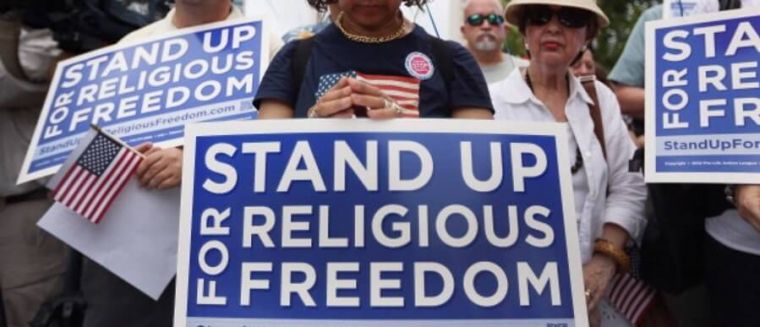New Survey Reveals Many Americans Still Uphold Religious Freedom

Contrary to what many people believe, majority of Americans still do uphold religious freedom.
This was the result of a new survey conducted by The Knights of Columbus, the world's largest Catholic fraternal service organisation, according to the Catholic News Agency. Their Marist Poll survey, which claims an overall margin of error of plus or minus 1.9 percentage points, was conducted on 2,729 U.S. adults last month.
Almost 90 percent of the respondents believe that protecting religious freedom is a priority. Around 57 percent described it as an "immediate priority," while another 32 percent considered it as an "important" priority.
Sixty-five percent of the respondents said religious freedom should be protected even when it conflicts with government laws, while 25 percent answered that it should not.
Republicans appear more willing to take a stand for religious freedom with 74 percent of them saying they are willing to fight for their faith even when faced with legal conflict. Sixty-three percent of politically unaffiliated respondents and 60 percent of Democrats expressed the same willingness.
"Majorities of Americans – regardless of party – have embraced religious freedom and have rightly rejected the false notion that it is something negative," said Carl Anderson, Supreme Knight of the Knights of Columbus. "They overwhelmingly support the protection of our first freedom, the free exercise of religion."
The survey also tackled Americans' views on Supreme Court appointments. Around 80 percent of the respondents said it is either an "immediate" or "important" priority to appoint Supreme Court justices who will interpret the constitution as "originally written" and not according to what society is dictating.
The Knights of Columbus has over 1.9 million members worldwide and is well known for its charitable efforts that help improve the education, health, and economic status of communities. They also provide war relief and public relief works.











